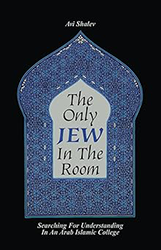Structured thematically rather than chronologically, Free as a Jew tells the story of Ruth Wisse’s development as a Jew, an intellectual, a scholar, an academic, a Zionist, and a conservative, to name a few of her attributes. To each could be added the adjective “outspoken.” Underscoring them all is her passionate commitment to the language and literature of Yiddish, most notably expressed in her long academic career that began in Montreal at McGill University and culminated at Harvard University.
Wisse starts her memoir at the beginning, with her birth in Czernowitz (then in Romania) in 1936, some of her family’s history in the region, and her immigration to Canada in 1940 with her parents and older brother. Those dates, she emphasizes, do not make this a Holocaust memoir, although the loss of many family members made it an indelible part of her life.
Wisse grew up and was educated in Montreal during a period when the city was Canada’s center of Jewish life. It was a community that employed the writer A.M. Klein to write speeches, press releases, and essays on behalf of the Canadian Jewish community, and where Yiddish writers including Itzik Manger, Melekh Ravitch, and Rokhl Korn were guests in her parents’ home. When Wisse began at McGill in 1953, fellow students included Leonard Cohen and Lionel Tiger, and writers such as Mordecai Richler were gaining international recognition.
At a time when Yiddish was not part of any university curriculum, it was the Yiddish poet Avrom Sutzkever, whom she first met in Israel, who suggested that she pursue the study of Yiddish literature. She laughed.
With twists and turns that included studying Yiddish with Max Weinreich, then his son Uriel at Columbia University, she returned to Montreal without her doctorate.
Eventually she enrolled as a doctoral student at McGill, later persuading the English department that she teach a course in Yiddish literature. At that time, Rabbi David Hartman, who had moved to Montreal from New York and would have a major impact on Wisse’s Jewish life, had begun teaching a class on Maimonides in McGill’s philosophy department, where he had completed his PhD. It all led to a program, and then a department, in Jewish studies.
For Wisse, these were also family years, raising three children with her husband Len. It was, she writes, “a wonderful life.”
These descriptions barely scratch the surface of what is a wonderful telling of that life. There’s Zionism, the Soviet Jewry movement, writing for Commentary, the Cold War, feminism, Quebec separatism, opposition to the Oslo Accords, how to commemorate the Holocaust — all issues to which she brings her independent, often controversial, viewpoint. Likewise, there are friendships and encounters with Isaac Bashevis Singer, Norman Podhoretz, Cynthia Ozick, and others. Through it all was what she sees as the growing “illiberalism” of liberalism, and with it her increasingly conservative outlook.
The book would have benefited from an index and more careful copyediting; hopefully, these omissions will be corrected in a second edition. Overall, Free as a Jew is a stimulating, thought-provoking — and entertaining — life story.





